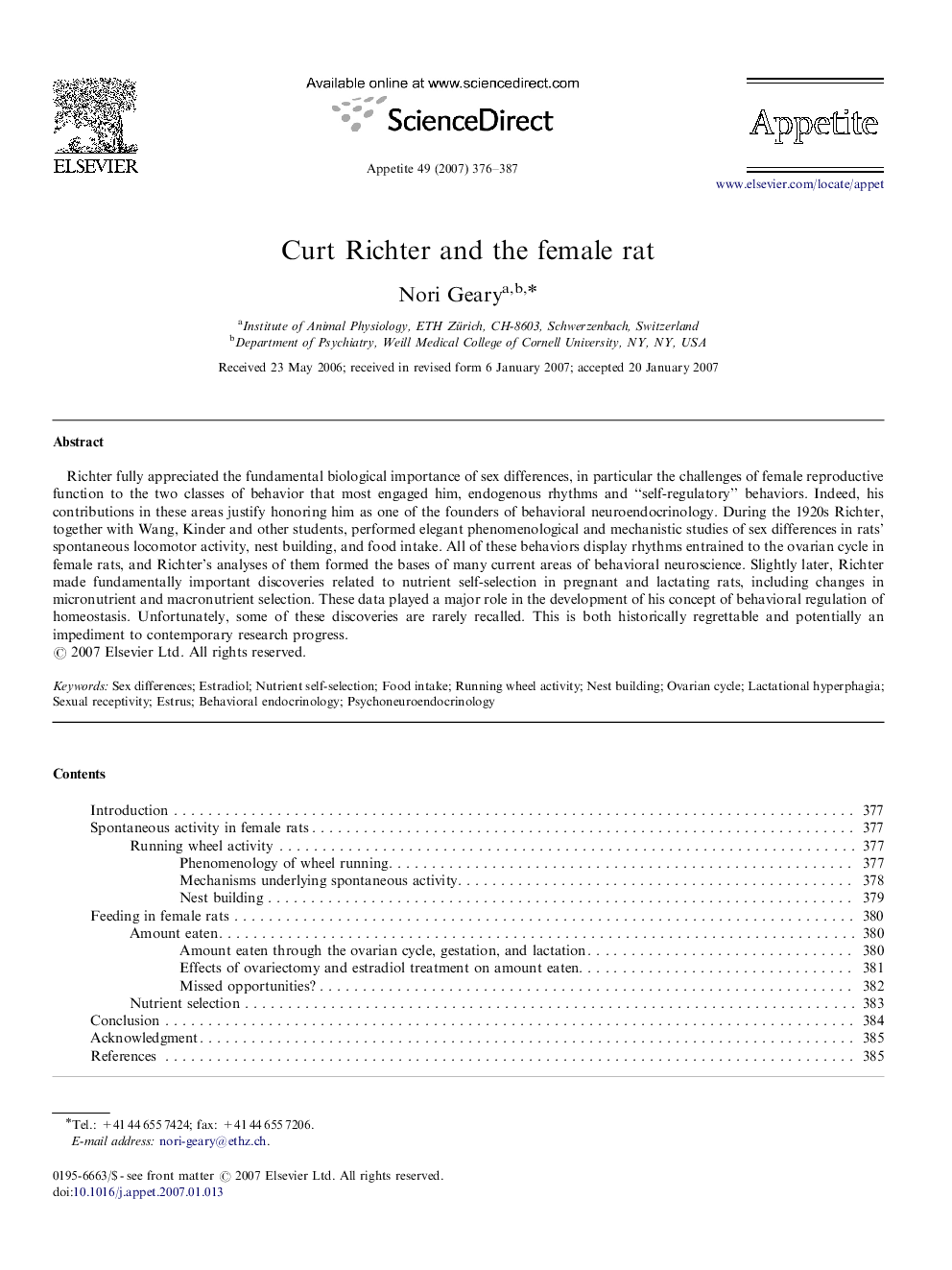| Article ID | Journal | Published Year | Pages | File Type |
|---|---|---|---|---|
| 941571 | Appetite | 2007 | 12 Pages |
Richter fully appreciated the fundamental biological importance of sex differences, in particular the challenges of female reproductive function to the two classes of behavior that most engaged him, endogenous rhythms and “self-regulatory” behaviors. Indeed, his contributions in these areas justify honoring him as one of the founders of behavioral neuroendocrinology. During the 1920s Richter, together with Wang, Kinder and other students, performed elegant phenomenological and mechanistic studies of sex differences in rats’ spontaneous locomotor activity, nest building, and food intake. All of these behaviors display rhythms entrained to the ovarian cycle in female rats, and Richter's analyses of them formed the bases of many current areas of behavioral neuroscience. Slightly later, Richter made fundamentally important discoveries related to nutrient self-selection in pregnant and lactating rats, including changes in micronutrient and macronutrient selection. These data played a major role in the development of his concept of behavioral regulation of homeostasis. Unfortunately, some of these discoveries are rarely recalled. This is both historically regrettable and potentially an impediment to contemporary research progress.
